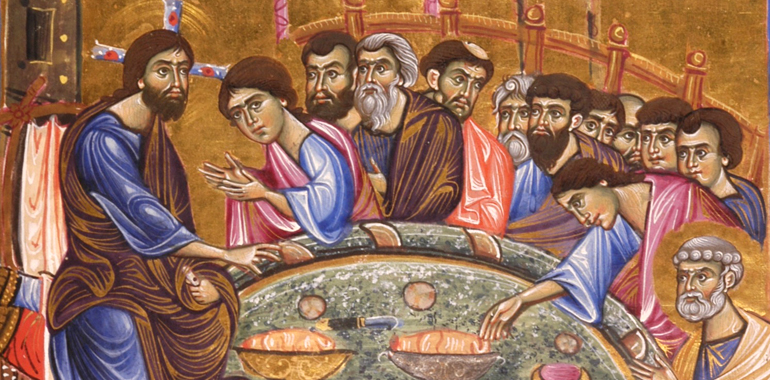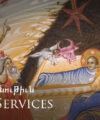
The term Eucharist means thanksgiving and refers to the whole act of gathering, praying, reading Holy Scriptures and proclaiming God’s Word as well as celebrating communion with the Holy Trinity (Father, Son and Holy Spirit). As we connect our faith with life and this prayer blessing, we experience the real presence of God.
As with baptism, the Eucharistic meal was not invented by Christ. Rather, the Christian Eucharistic meal is specifically connected with the Passover meal of the Old Testament. Originally a ritual supper in commemoration of the liberation of the Israelites from slavery in Egypt, the Passover meal was transformed by Christ into an act done in remembrance of Him. At the Last Supper, Christ’s action of taking the bread and wine and ordering his disciples to eat and drink it as his own Body and Blood has become the center of the Divine Liturgy of the Church and the presence of the Risen Christ in the midst of His people.
When we celebrate the Divine Liturgy on Sundays, we are participating in “the work of God,” and Holy Communion is central to our worship. (John17: 4) During Holy Communion, we remember His life, death and resurrection, as Christ became the new and eternal Passover Lamb freeing men and women from slavery of evil, ignorance and death and transferring them into everlasting life in the Kingdom of God. The Holy Eucharist is the sacrament in which, those faithful to Christ’s memory and commandment, receive the body and blood of Christ in consecrated bread and wine for the forgiveness of our sins and the strengthening of our union with Christ and one another. This empowers us for the work of witness and service in Christ’s name.


